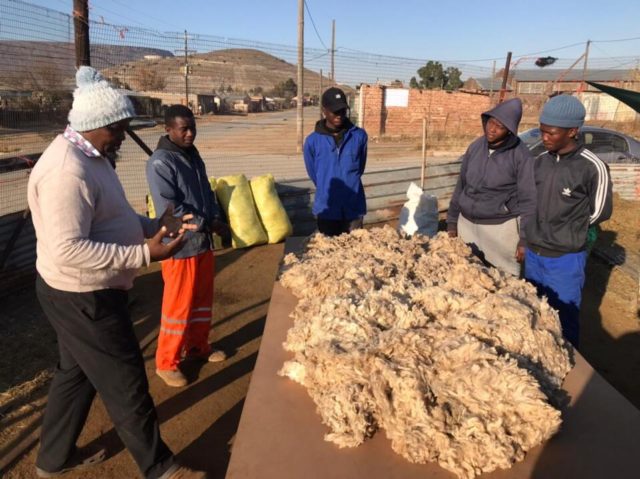In an effort to preserve the Noupoort farming legacy, a passionate local sheep farmer, Dumisani Mnweba, created a training programme for young aspiring farmers with the support of Noupoort Wind Farm.
IN AN EFFORT to preserve the Noupoort farming legacy, a passionate local sheep farmer, Dumisani Mnweba, created a training programme for young aspiring farmers with the support of Noupoort Wind Farm.
The training programme is geared towards the development of agricultural and business skills among the youth, in order for them to be able to run a sustainable business.
It is further designed to ignite a love for this essential work and provide the skills needed to run a profitable business in agriculture.
The vision was supported through Noupoort Wind Farm’s enterprise development programme, with the aim of assisting and accelerating the sustainability of local farming enterprises.
Mnweba has thus far received financial support to purchase stock and was granted additional funding to train four local youngsters over a period of six months.
He began his training programmes four years ago. He runs five programmes in a year, employing eight to 10 participants over a period of 10 days.
He currently has four young people understudying him in his sheep farming operation.
Sandisiwe Mntonintshi, the Noupoort Wind Farm economic development manager, explained that their support was motivated by the reality that very few of the youth who matriculate have the means to pursue higher education.
Mntonintshi said many young people succumb to negative social influences and become part of the unemployment statistics.
“A viable route to employment and SMME development is involving the youth in agriculture, where local farmers can act as mentors,” said Mntonintshi.
“Historically, Noupoort has always been a town rich in agriculture, so it is important to keep that legacy alive.”
Inspired by his love for farming and wanting to upskill youth in this Northern Cape community, the programme has the potential to curb the high unemployment and poverty rates.
Mntonintshi further explained that the purpose of the project is to cultivate a love for agriculture among black youth and to encourage some form of education through agriculture.
“A lot of the youth are heavily dependent on Sassa grants. I hope to give them a skill that will enable them to be independent.”
“The agricultural sector is essential for fostering economic growth, reducing poverty and improving food security. It has the potential to become a key economic contributor to the area, where residents are currently ‘buying-in’ their meat, fruit and vegetables from surrounding towns.
“The town is blessed with rich soil and residents who are knowledgeable in farming and the vast number of unemployed youths who need educational opportunities provide an excellent fit for our asset-based community development programme, with the goal to reduce food scarcity and end social challenges, including hunger and substance abuse in our town,” concluded Mntonintshi.








